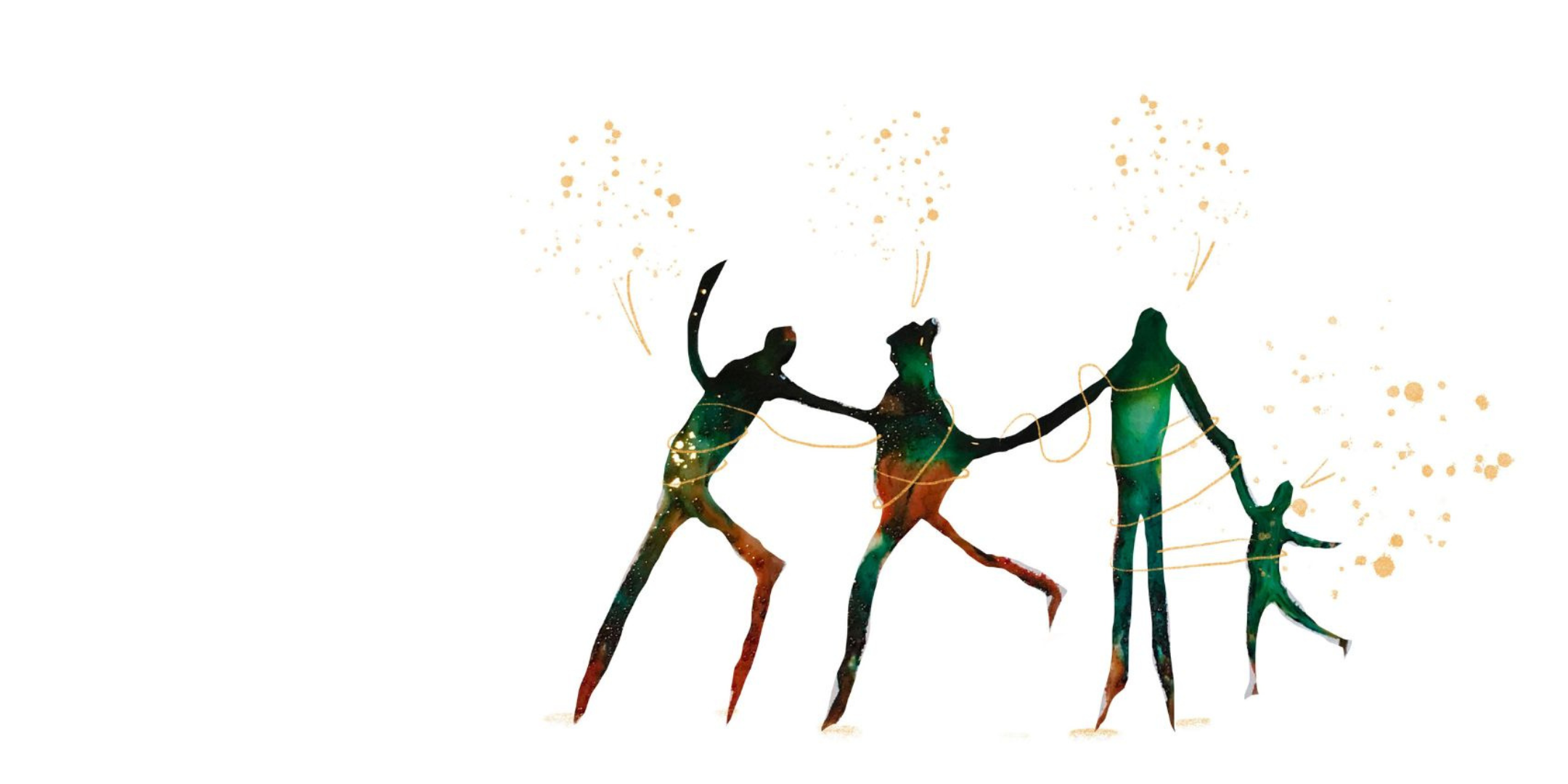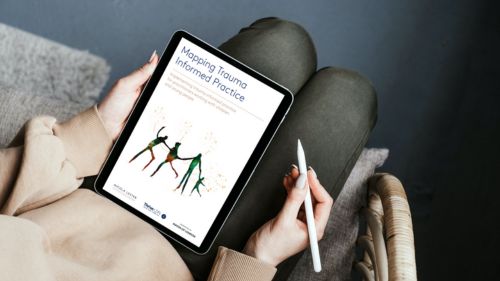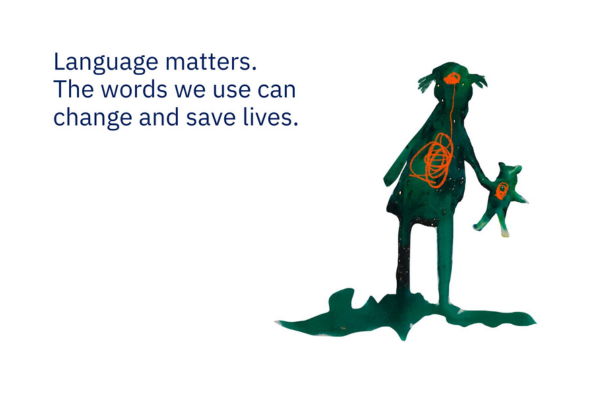
Thrive LDN’s Gift of Reconnection trauma informed practice training explained

Thousands of professionals across London and beyond are accessing free, comprehensive trauma-informed practice training, supported by the Mayor of London and hosted in partnership with Thrive LDN.
The ‘Gift of Reconnection’ training series, led by Dr Nicola Lester, a specialist in psychological trauma, has garnered significant attention from police forces, NHS professionals, local authorities, and educational institutions.
Available through the Thrive LDN website and YouTube, the training comprises bronze, silver, and gold level modules, designed for anyone supporting others, regardless of prior expertise. These training materials are designed to help professionals and individuals develop a deeper understanding of trauma and how to support those affected as part of their day-to-day work.
The recorded videos, featuring British Sign Language (BSL) interpretation and closed captions, offer flexible learning at individual pace.
Gift of Reconnection training series
The Gift of Reconnection training series is structured into the following main components:
1. Trauma informed practice training across three levels (modules): bronze, silver, and gold
2. Supplementary resources for practitioners working with children and young people
3. Trauma-informed family liaison practice training and supplementary resources for educators and educational settings
4. In conversation with Dr Nicola Lester – learn more about the training series
Extensive reach
As of January 2025, the training videos have accumulated over 7,860 viewing hours, with more than 29,510 views, highlighting its wide appeal.
Flexible learning: Participants can engage in the full five-hour course or opt for an eight-week bitesize email programme, facilitating manageable weekly learning.
Targeted resources: Supplementary resources for practitioners working with children and young people include facilitation guides, implementation guidance, and illustrated quotations.
Specialised family liaison training: A 75-minute module focuses on trauma-informed family liaison practice, providing a framework for supporting families after traumatic bereavement, with additional guidance for educators.
Broad adoption: Notable trends include widespread use by police forces, NHS professionals, local authorities, higher education institutions, and schools, as well as charities and third-sector organisations.
All training materials, including videos, resources, and facilitator guides, are freely available on the Thrive LDN website. In the article below we outline some more details and direct links.
1. The Gift of Reconnection training series: bronze, silver, and gold

This training is suitable for anyone in a supportive role and provides insight into how trauma affects individuals.
• Completing the full series (through to gold level) takes approximately 5.5 hours.
• All participants can request a certificate of participation at each level.
• Training materials are freely accessible and downloadable.
• An 8-week bitesize email programme is available, delivering the training in 30-minute weekly segments for a manageable learning approach.
2. Trauma-informed practice: resources for supporting children and young people

These additional resources, developed by Nicola Lester Psychological Trauma Consultancy, help create supportive environments for young people and complement the Gift of Reconnection training series. Resources include:
Facilitation guide: Organisational Commitment to Trauma Informed Practice is a facilitation guide to support practitioners working with children and young people. The guide is broken down into sections which are aligned with the introduction and eight chapters of the training series. It provides helpful tips, techniques and activities to adopting a trauma-informed approach in your educational setting.
Implementation guidance: Mapping Trauma Informed Practice provides implementation guidance for practitioners working with children and young people. This guidance is designed to support organisations in developing trauma-informed approaches to service delivery by encouraging the mapping of current processes, policies, and practice against the six principles of trauma informed care.
Illustrated quotations: Taken from the Gift of Reconnection training series, download a set of 10 illustrated quotations. The illustrations can be used to support you in the promotion of facilitated sessions or used across digital channels.
3. Trauma-informed family liaison practice training

This 75-minute training module is designed for professionals working with traumatic bereavement cases, particularly those supporting children, young people, and families. It provides practitioners with the skills and confidence to equip them to engage with those impacted by a sudden death. It offers guidance for best practice from point of death notification onwards.
Included as part of the trauma informed family liaison practice training is the publication of downloadable specialist guidance for educators and educational settings to support their response to a traumatic bereavement. They include:
• Family liaison module facilitator notes
• Guidance for educators and educational settings
• Guidance for notifying children and young people
• The impact of traumatic bereavement on children and young people
4. In conversation with Dr Nicola Lester
In February 2025, Thrive LDN hosted a live ‘In conversation with’ webinar with Dr Nicola Lester, the Gift of Reconnection training series trainer. The 45-minute discussion outlined the research and development for the new trauma informed family liaison module; gave examples of how this training can support those in a frontline role working with families; and provided more detail about Nicola and Thrive LDN’s trauma informed resources.
“There’s certainly been a really significant shift in recent years of the importance of a trauma informed approach… As with anything that increases in popularity, it is also subjected to things like misunderstandings and misapplication.
“One of the things that we really tried to do with the Gift of Reconnection was firstly make sure that it was absolutely accessible so that organisations weren’t having to payout to keep on training people. We wanted to make it accessible, free of charge and that it was easy to access with it being an on resource.
“The other thing that we really wanted to do was to simplify this concept, which was why we talked about it being about the ‘gift of reconnection’ rather than trauma informed practice. To ultimately remind practitioners that what we’re looking for when we talk about trauma informed practice is the capacity and willingness to be human. That doesn’t necessarily mean lots of changes to services and processes… it’s just about giving some consideration to how they’re delivered and actually implemented, rather than necessarily needing to change whole organisations or whole systems.” – Dr Nicola Lester, ‘In conversation with Thrive LDN (February 2025).